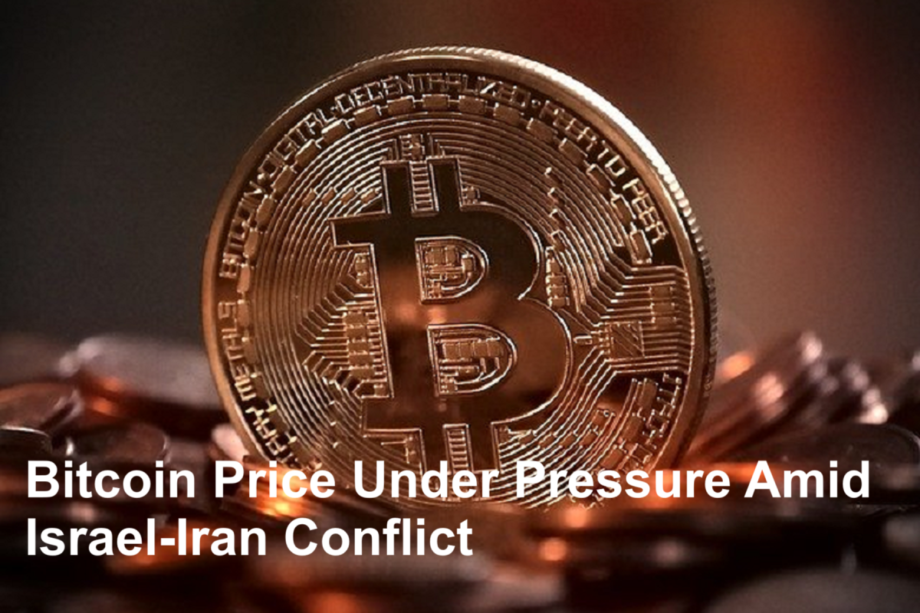In recent weeks, escalating tensions between Israel and Iran have created waves in global markets, and Bitcoin (BTC) is no exception. The ongoing conflict has triggered heightened uncertainty and led to significant fluctuations in cryptocurrency markets. Notably, Bitcoin has experienced selling pressure as investors react to geopolitical risks and shifting market sentiments. This article examines the impact of the Israel-Iran conflict on Bitcoin’s price, the factors driving investor behavior, and what this means for the future of the leading cryptocurrency.
Geopolitical Tensions and Market Volatility
The conflict between Israel and Iran, marked by military confrontations and diplomatic strain, has fueled risk aversion among investors worldwide. In times of geopolitical instability, markets often see increased volatility as investors seek to minimize exposure to riskier assets. Bitcoin, despite its status as a decentralized digital asset and sometimes considered a “digital gold,” has shown significant price sensitivity to global events, reflecting a complex relationship with traditional financial markets.
As tensions escalate, some investors have chosen to liquidate Bitcoin holdings, contributing to a downward price trend. This trend highlights how geopolitical risks, especially those with broad implications for economic stability and energy markets, can influence cryptocurrency markets.
Investor Sentiment and BTC Selling Pressure
The recent selling pressure on Bitcoin can be attributed to a combination of factors fueled by the conflict. Uncertainty about the conflict’s duration and potential economic fallout has led traders to prioritize liquidity and reduce exposure to volatile assets. Additionally, the heightened demand for traditional safe havens like the US dollar and gold has drawn capital away from cryptocurrencies.
Despite Bitcoin’s narrative as a hedge against traditional market turmoil, in practice, it has sometimes exhibited correlation with riskier assets, especially during times of crisis when liquidity needs dominate investor decisions. This behavior has made Bitcoin vulnerable to sell-offs amid geopolitical crises, including the Israel-Iran conflict.
Price Movements and Market Reactions
Since the conflict intensified, Bitcoin’s price has seen notable dips, reflecting the selling pressure from cautious investors. Cryptocurrency exchanges have reported increased trade volumes, suggesting an active market response to the unfolding situation. The price fluctuations demonstrate Bitcoin’s susceptibility to macroeconomic and geopolitical events, influencing short-term trading dynamics.
Technical analysts note key support and resistance levels currently tested by Bitcoin, with the potential for further volatility as the conflict evolves. Traders are closely monitoring both geopolitical developments and broader macroeconomic indicators for clues on Bitcoin’s next move.
Long-Term Implications and Outlook
While short-term price pressure is evident, some experts argue that Bitcoin’s fundamental advantages remain intact. As a decentralized digital currency not tied to any government or central bank, Bitcoin offers an alternative financial asset during times of global uncertainty. Long-term investors may view temporary price dips as buying opportunities, depending on their risk tolerance and investment strategy.
Additionally, ongoing geopolitical tensions could spur renewed interest in cryptocurrencies as alternatives to fiat currencies, especially in regions affected by economic sanctions or instability. Thus, Bitcoin’s long-term trajectory may depend on developments in the geopolitical landscape as well as regulatory responses worldwide.
Conclusion: Navigating Bitcoin Investments Amid Conflict
The Israel-Iran conflict has undeniably exerted downward pressure on Bitcoin prices through increased selling activity amid heightened investor caution. This scenario underscores the interconnectedness of global geopolitical events and digital asset markets. Investors should remain vigilant, balancing short-term volatility with Bitcoin’s potential long-term role in diversified portfolios.
For those considering entry or exit points in Bitcoin, staying informed about geopolitical updates and market trends is crucial. Utilizing risk management strategies and understanding the broader context of Bitcoin’s price behavior can help navigate these challenging times effectively.









